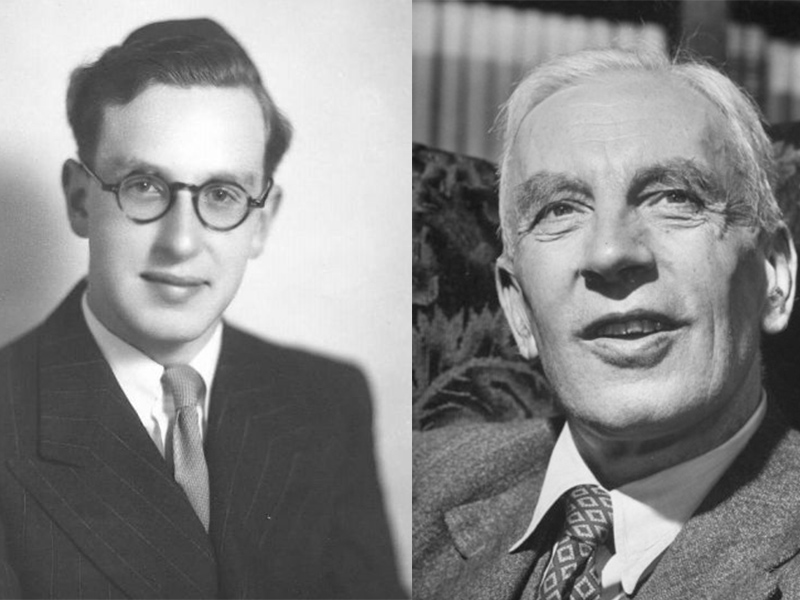The Herzog-Toynbee Debate asked whether Israel needs to justify its existence. It examined what standards of morality the country should be held to. It even probed whether Jews today are a vibrant continuation of a people rooted in antiquity.
The debate was held 55 years ago but feels as vital now as it was then. On Jan. 31, 1961, Yaacov Herzog faced off against Arnold Toynbee at the B’nai B’rith Hillel House in Montreal.
Toynbee, then 71, a professor at the London School of Economics, had been invited to deliver a lecture at McGill University several days earlier. During his remarks, Toynbee questioned the right of the Jewish People to have a state and drew a moral comparison between the Israeli treatment of Palestinians and the Nazi treatment of the Jews. In his earlier writing, Toynbee had also characterized the Jews as a “fossil” civilization.
After Toynbee’s controversial remarks hit the media, Israeli ambassador to Canada Yaacov Herzog, then 39, challenged the professor to a debate. Herzog was the son of the second Ashkenazi chief rabbi, Yitzhak Herzog. The diplomat’s brother, Chaim Herzog, would later become the sixth president of Israel.
And five days later, Herzog and Toynbee met at McGill University’s Hillel House. Television coverage was barred from the event, but it was carried by radio in Canada, and thankfully the entire 90-minute debate is available via YouTube. The audio quality is excellent and the debate is mesmerizing.
But why should anyone care about this beyond members of academe and students of oratory?
Writing in an excellent article for Tablet, Yair Rosenberg points out the striking relevance of this long-ago debate.
”It’s a familiar chain of events: a prominent scholar and public intellectual visits an elite college campus to speak to students. In his remarks, he shocks his audience and the Jewish community by questioning the right of the Jewish People to a state, and asserting that the Zionist treatment of the Palestinians is morally equivalent to the Nazi treatment of the Jews. Naturally, the address elicits strong condemnation from the local Israeli ambassador. But this is 1961… and the debate between the scholar and the diplomat is worth revisiting, not only because its terms remain fresh, but because it offers a way of talking about Israel that has largely been lost.”
The debate was always civil, often punctuated by laughter (often nervous laughter). And how did the debaters fare? Reported the Canadian Jewish Chronicle: “The young diplomat analyzed the several statements of the historian one by one, demolished some, got the professor to admit that in others Jewish procedure was in accordance with the universal pattern, and on others the issue rested.” Toynbee even conceded that a people – the Jewish People in this case – could become “defossilized.”
Herzog pressed Toynbee about his comparison between Israelis and Nazis – and quoted from Toynbee’s writings implicating the behaviour of the British and the French in earlier conflicts. Herzog asks, “Do you admit, sir, that similar guilt attaches to nearly every country in the world?”
“I’ll agree that most societies have committed atrocities… atrocities are atrocities and murder is murder, whoever commits it.”
Herzog then asked if Toynbee would similarly denounce “Arab atrocities against Jewish civilian populations.”
“Of course,” the professor agreed.
In a front-page commentary, The CJN founder and editor M.J. Nurenberger was vehement in his denunciation of Toynbee. Nurenberger drew an analogy between Toynbee and the biblical prophet Balaam who undertook to curse the Israelites on behalf of the King of Moab. “What does Balaam Toynbee want with his subservience to the Balaks of the Near East? Does he believe, for one moment, that any normal human mind is capable of visualizing the fantastic mirage of Jews capable of killing like Nazis?”
The Ottawa Citizen reported, “Prof. Toynbee’s comparison is indeed far-fetched. The killing in a defensive war cannot be compared with a calculated policy of killing a group of people without cause, as the Nazis did.”
Criticism of Toynbee came from even closer quarters. “Herzog was clearly the victor in the joust,” Herzog biographer Michael Bar-Zohar writes, “and Pnina Herzog overheard Mrs. Toynbee, who was sitting nearby, saying to her husband, ‘I told you not to take part in this debate!’”
As for the reception in the room, the Jewish Chronicle reported, “If this group is representative of our contemporary student youth, Jewry on this continent can be both proud and optimistic. They received Toynbee with cordiality and receptivity, but with stout Jewish pride and dignity and with the excellently marshalled information on their guest and on his subject.”
The Chronicle was spot on. Sitting beside the debaters was 20-year-old McGill student and vice-president of the Hillel association, Irwin Cotler – the future Canadian minister of justice and human rights advocate.
